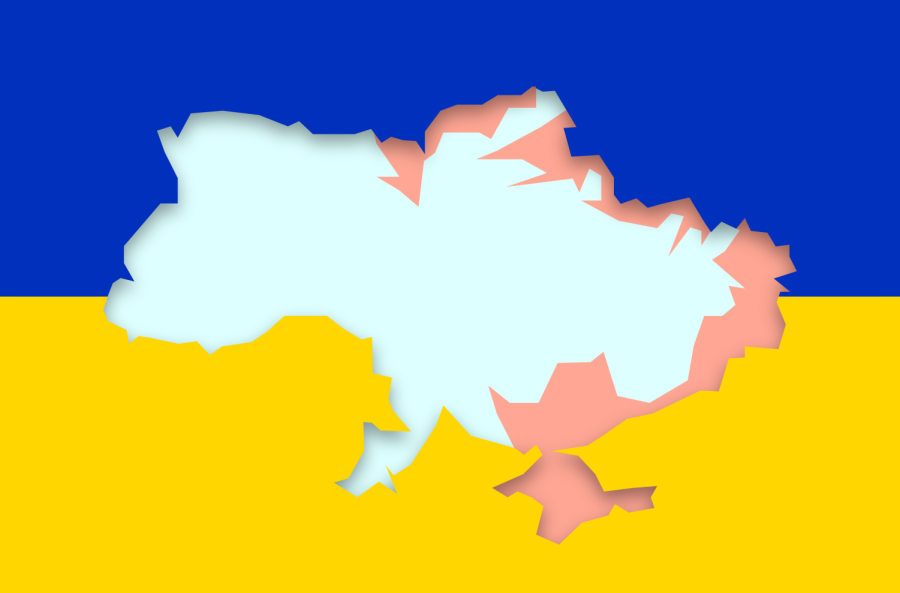Russo-Ukrainian War: A Threat to the Safety of Eurasia
“Time is of the essence,” Olha Krupa, the Ukrainian-born director of Seattle University’s masters of public administration program and associate professor in the Institute of Public Service, wrote to The Spectator. “Putin is destroying my beautiful country while the West is watching, eating popcorn.”
Krupa maintains close ties with her family, friends and loved ones in the country that is under siege. She described her family’s harrowing trip to safety.
“My niece started her evacuation with her sister who is 17 and her son who is five,” Krupa said. “She walked at night for ten miles in the winter, in Ukraine. Then she had to wait six hours to cross the [Polish] border—that’s how many people are trying to leave.”
Her sister also evacuated to Poland—a six-mile drive that took 52 hours, with two young children in the backseat. Her father, brother-in-law, oldest sister and many other family members are still in Ukraine, fighting for their country.
Since 2014, Russia and its neighbor Ukraine have been involved in a war over control of Crimea and the Donbas region in Eastern Ukraine. In 2014, Russia annexed Crimea and now they have set their sights on conquering all of Ukraine. Russian President Vladimir Putin’s troops invaded Ukraine, escalating the conflict, Feb. 24, 2022. Over the past couple of weeks, Russia has bombed Ukrainian cities, killed civilians, and forced 1.5 million Ukranians to flee their homes.
Numerous factors from geopolitical tension to intricate alliances and trade interests contributed to this situation.
For instance, many point to Putin’s view that former Soviet Union-controlled territory (such as Ukraine) was unjustly taken from Russia and should rightfully be Russian territory. Since former Ukrainian President Viktor Yanukovych was forcibly removed from office in 2014 (in large part due to his friendliness with Russia), Putin has expressed increasing hostility towards Ukraine and Ukrainian leadership. In Putin’s view, he is returning things to how they should be.
“[Putin] is not creating history,” Krupa said. “He’s fixing history—and that has grave implications for all European countries.”
Tom Taylor, chair of Seattle U’s History department, sees another reason that Ukraine was specifically targeted, pointing to Article 5 of the North Atlantic Treaty Organization (NATO), which promises aid from all signed nations to one that is attacked.
If Russia had instead attempted to annex other territories it had once had control over, such as Lithuania, Latvia or Estonia, it would’ve had to face the full wrath of the 27 other NATO-allied countries.
“Ukraine was not part of the NATO,” Taylor said. “So whatever happens, you [Russia] knows that you wouldn’t have to face the immediacy of Article 5.”
Still, some nations are trying to assist Ukrainians in their struggles due to the conflict. Economic sanctions are one form of aid, often consisting of a series of financial blockades of a country. These can take the form of travel bans, trade embargoes, asset seizures or any other form of policy intended to harm the economic standing of another country. U.S. President Joe Biden and other world leaders have launched sanctions against Russia as a way of assisting Ukraine.
Meenakshi Rishi, a professor in Seattle U’s Economics department believes that economic sanctions in this conflict are a mixed bag.
“Speaking very succinctly, [sanctions are] a very blunt tool,” Rishi said. “Often sanctions generate more heat than light because there’s a lot they can do, but also a lot that is ineffective.”
President Biden has said that the goal of American sanctions is to maximize the war’s economic impact on Putin and Russian oligarchs. This is because pressure on Russian financial resources could eventually incentivise the country to pull out of Ukraine. However, economic sanctions often work bottom-up, meaning that working-class Russians will suffer the effects of the money squeeze first.
“Ultimately, no matter who declares war or who declares the sanctions, it’s the ordinary people who suffer,” Rishi said.
Zelenskyy has expressed appreciation for the international assistance, but has also asked for additional measures. Zelenskyy’s main request is an internationally enforced no-fly zone over Ukraine, which would limit Russian bombing of civillian populations.
There are steps that members of the Seattle U community can take to assist Ukrainans. Organizations such as the World Central Kitchen or the International Committee of the Red Cross that are working to assist Ukranians in crisis are open for and in need of donations.


